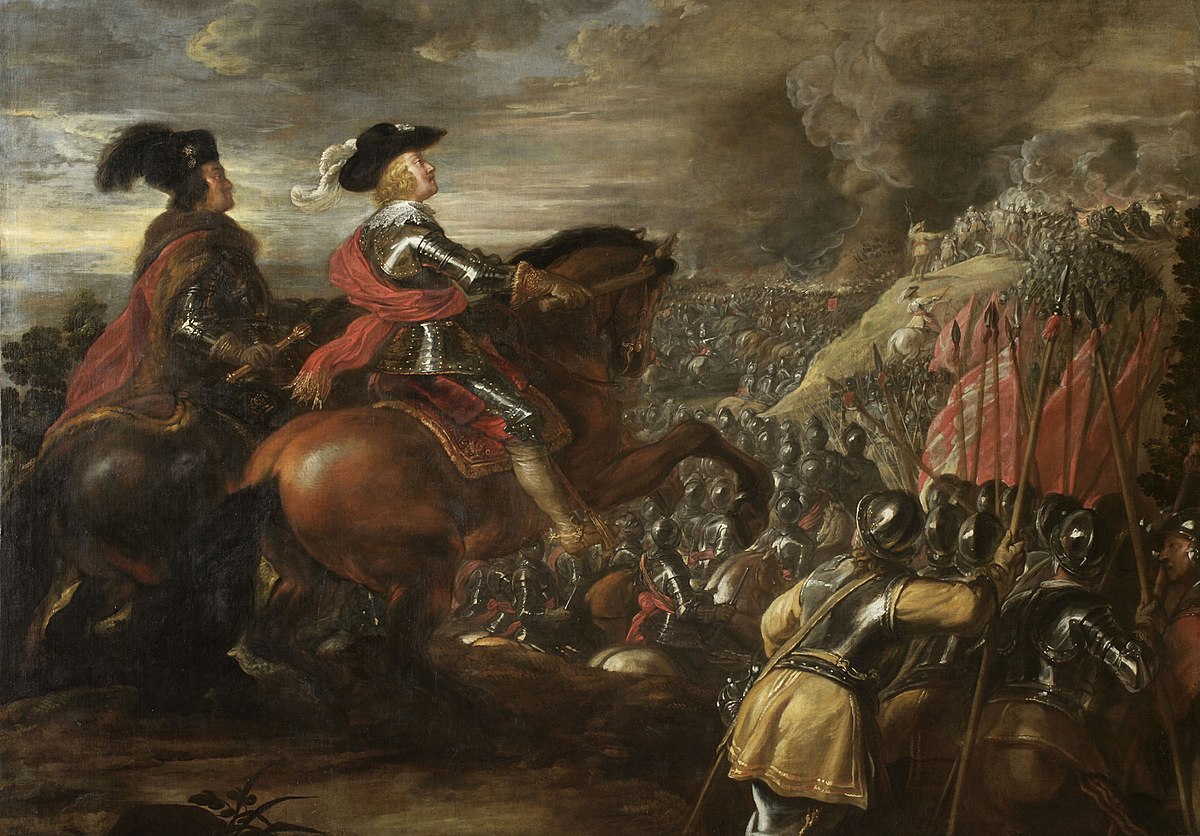
Battle of Nördlingen
Nördlingen, Bavaria, GermanyBy 1634, the Swedes and their Protestant German allies occupied much of southern Germany and blocked the Spanish Road, an overland supply route used by the Spanish to funnel troops and supplies from Italy to support their ongoing war against the Dutch Republic. In order to regain control of this, a Spanish army under Cardinal-Infante Ferdinand linked up with an Imperial force led by Ferdinand of Hungary near the town of Nördlingen, which was held by a Swedish garrison.
A Swedish-German army commanded by Gustav Horn and Bernhard of Saxe-Weimar marched to its relief but they significantly underestimated the number and calibre of the Imperial-Spanish troops facing them. On 6 September, Horn launched a series of assaults against earthworks constructed on the hills to the south of Nördlingen, all of which were repulsed. Superior numbers meant the Spanish-Imperial commanders could continually reinforce their positions and Horn eventually began to retreat. As they did so, they were outflanked by Imperial cavalry and the Protestant army collapsed.
Defeat had far-reaching territorial and strategic consequences; the Swedes withdrew from Bavaria and under the terms of the Peace of Prague in May 1635, their German allies made peace with Emperor Ferdinand II. France, which had previously restricted itself to funding the Swedes and Dutch, formally became an ally and entered the war as an active belligerent.
Ask Herodotus
HistoryMaps Shop

Heroes of the American Revolution Painting
Explore the rich history of the American Revolution through this captivating painting of the Continental Army. Perfect for history enthusiasts and art collectors, this piece brings to life the bravery and struggles of early American soldiers.








